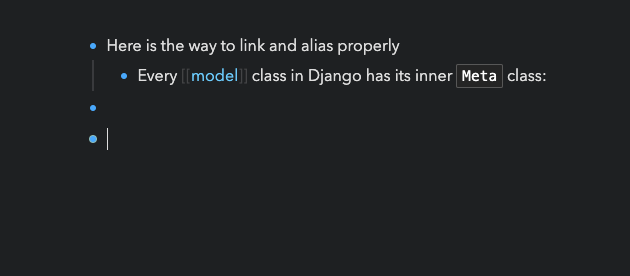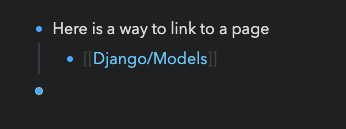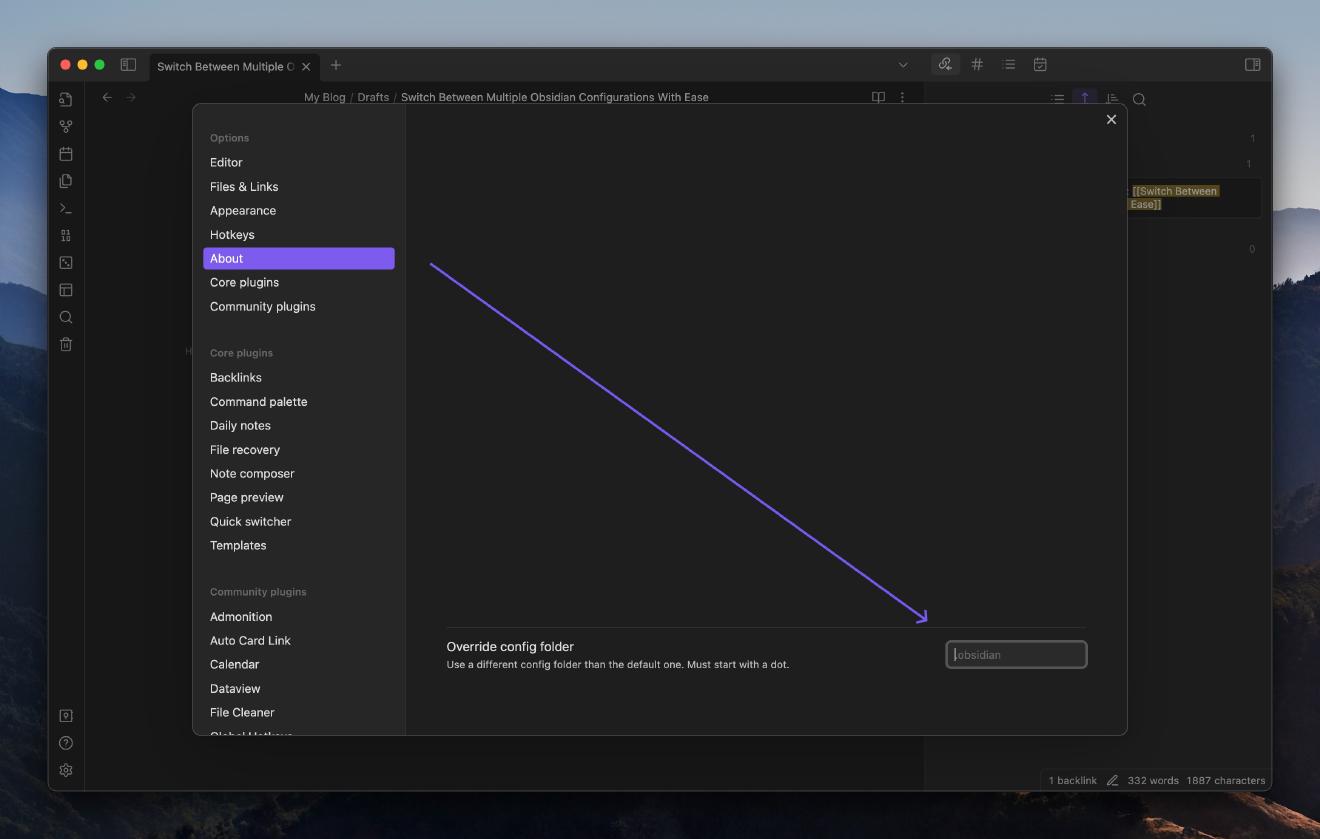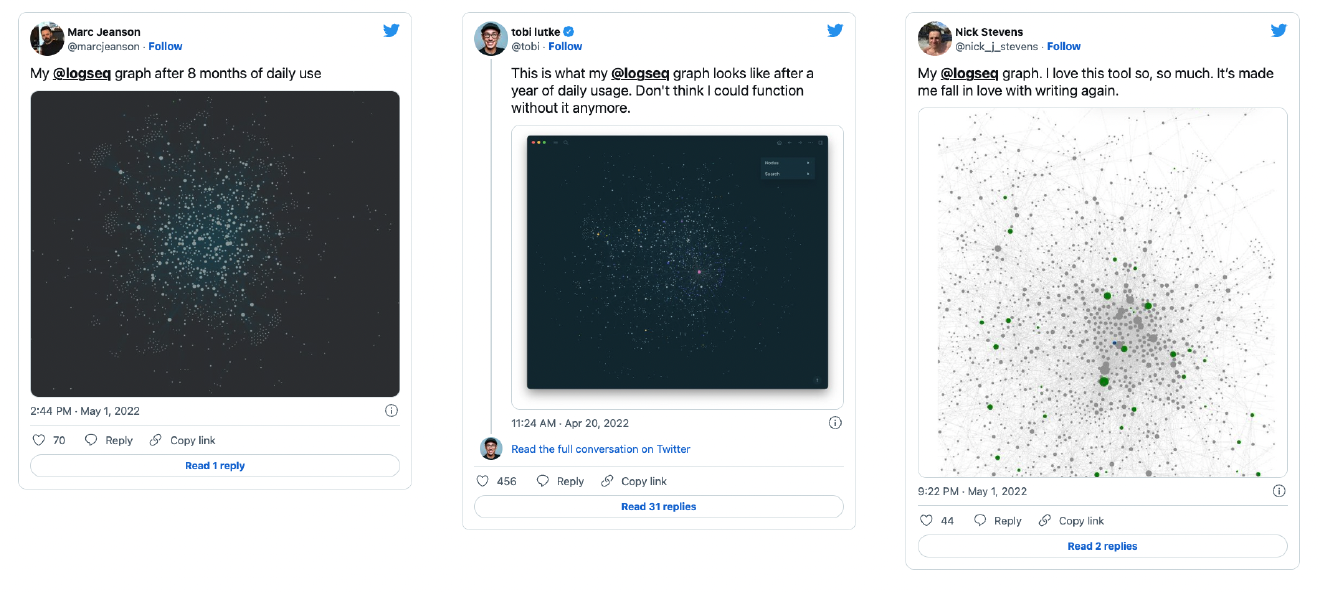
Logseq has become my latest obsession and quickly replaced my other “ultimate-note-dump” solutions. It has an extremely vibrant community, but (no offense) not always adequate documentation. Turns out, many things one might be looking for have already been implemented, but one only finds out the right way to do them via the community.
For me, one of these things was link aliasing. Let me explain what I mean. We all know that Logseq (similar to Obsidian, Roam Research, and others) supports a wiki-style way of linking between pages. In simple words, referring to a [[page]] using double square brackets will automatically add a link to it.

The problem I’ve had was linking to a page in the context of a sentence or block of fluent text. So, I’d usually do something like that:

Indeed, not the nicest idea. It fulfils the part of linking to a page, but breaks the fluency of the text.
Turns out, the real solution was right in front of my nose, and I’d never bothered to try it. What if instead of linking to a [[page]], we do it like this instead:
Every [model]([[Django/Models]]) class in Django has its inner `Meta` class

And indeed, it works like a charm. I no longer need to decorate my text with superfluous links. I can do that as part of the text itself.
Hope this helps others too.
Thank you for reaching this point! If you enjoyed this post or found it helpful, consider supporting my creative journey! Every coffee helps me keep writing and sharing new ideas.
Have something to say? Send me an email or ping me on social media 👇
Want to explore instead? Fly with the time capsule 🛸
You may also find these interesting
How to Sync Your Existing Logseq Database Between Mobile and Desktop
It works, but is a little trickier than I thought at first.
How Logseq Introduces Event Sourcing to Note-Taking
Logseq is the closest thing to event sourcing in note-taking and knowledge management.
Do You Use One Or Multiple Obsidian Vaults?
Most people using Obsidian prefer using a single vault for all their notes, according to a quick poll. This gives users more flexibility and fine-grained control in organizing their notes. A single vault also contains all of one’s notes in one place - this is especially useful for cross-linking and knowledge discovery.
Switch Between Multiple Obsidian Configurations With Ease
The solution to having separate Obsidian configurations for each device is to use different settings folders for each device. This way, you can keep your settings separate and synchronized across devices.


